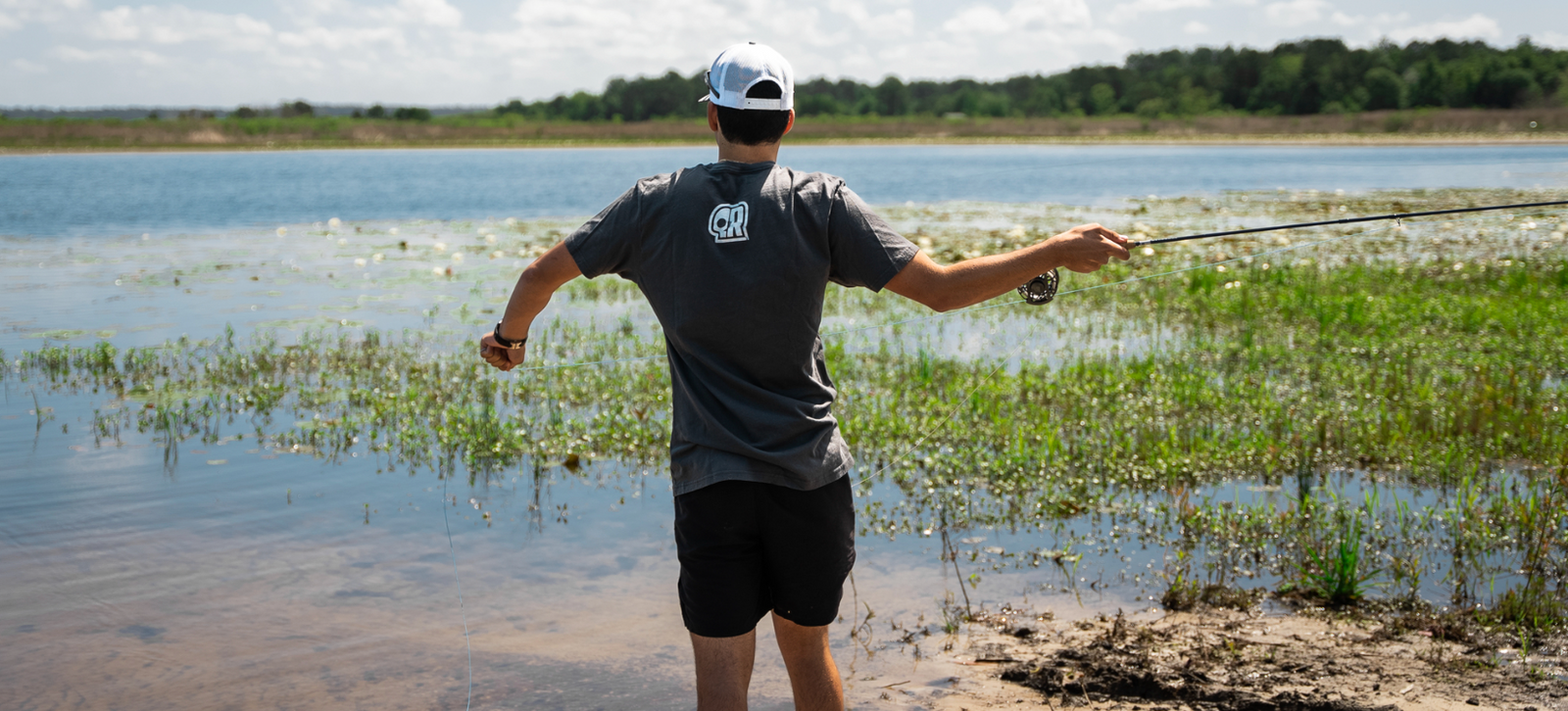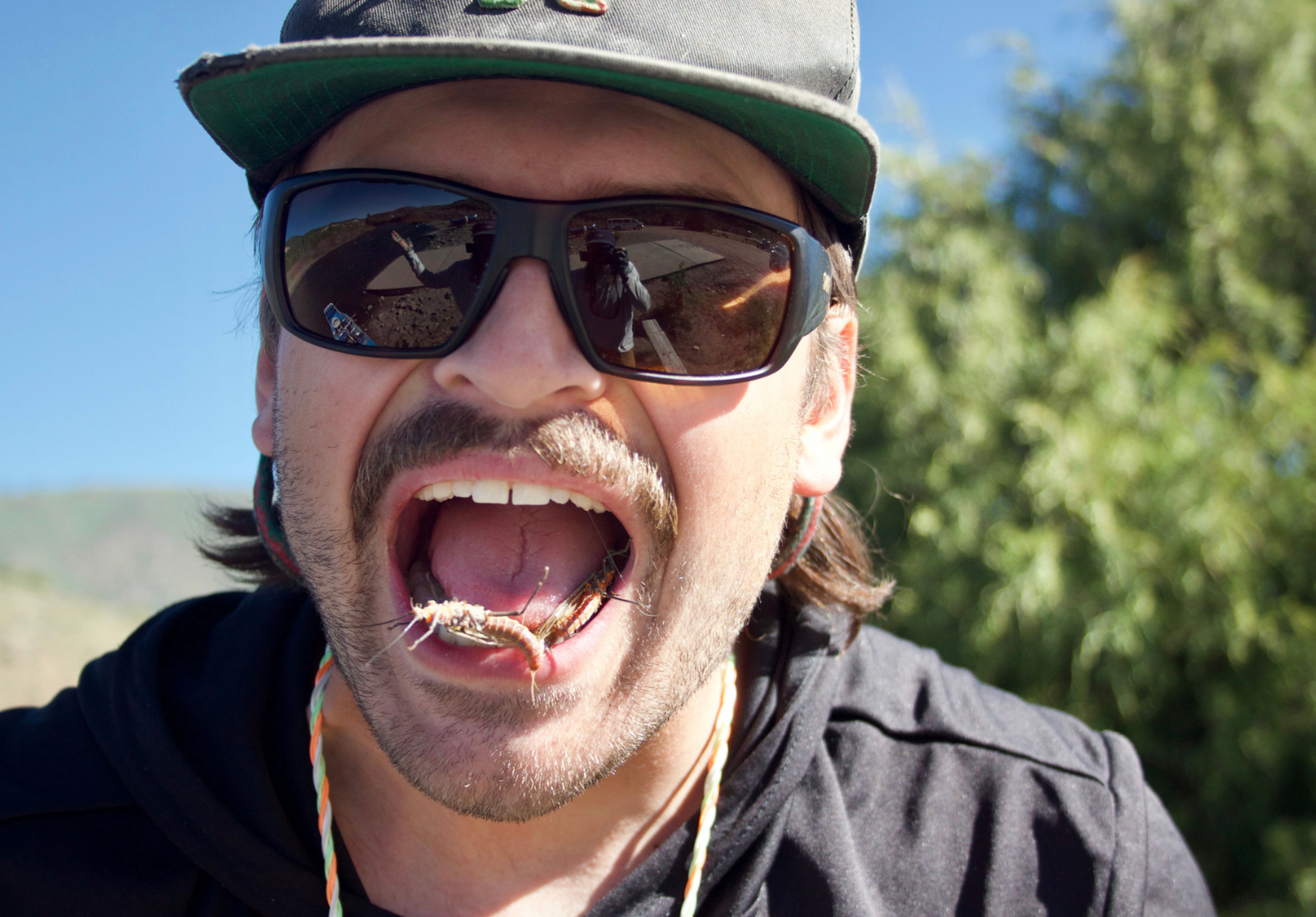
Any experienced fisherman can understand that weather can be unpredictable, and having spentmost of my time in a coastal environment, it’s imperative to always have backupplans (it helpsto have more than one). At this particular moment in the middle of wintertime in Texas, the planthat Peter Kaple and I devised involved us hauling his signature Sabine Skiff to a campsite nearlyten miles from the border. Having only camped once before in my life, I really didn’t bring muchto the table besides the ability to cast a fly rod, drive a car/boat, a bit of fishing knowledge, andan open mind. In this blog, my goal is to share some of the things I picked up from this skiff-camping excursion.
---------------------------------------------------------------------------------------

---------------------------------------------------------------------------------------
1. Make a Gear List
---------------------------------------------------------------------------------------
Maybe I’ll add a part (a) to this which is pack early and carefully. When I arrived at Pete’s house, just after sunrise, all of the gear we needed was either organized next to his skiff in thegarage or packed in a bag inside. The packing should be done the day before instead of themorning of the trip to minimize the risk of forgetting something. Despite the fact that the triponly involved two people, we still had a truckload full of gear. While this was probably becauseof the excessive camera gear to ease Pete’s creative urges, it’s never a bad idea to craft a bulletedlist of all the items you think you’ll need for the trip. And if you’re like me with minimalexperience, my advice would be to seek the advice of someone who’s done a similar trip.
---------------------------------------------------------------------------------------

---------------------------------------------------------------------------------------
2. Location Scouting
---------------------------------------------------------------------------------------
First, do your due diligence in finding a campground that can accomodate a skiff. We learnedthis the hard way when we saw nowhere to park the skiff near our tent, except for a small lotnext to a public pier.Using an RV spot is ideal for a truck hauling a skiff as it’s best to avoidleaving your skiff in the boat ramp parking lot at the end of the day. Other than finding anadequate campsite, it should go without saying that having a game plan before you launch theboat is an absolute must. It’s all uncharted waters in your mind, so a nautical chart might be yourbest friend in this scenario. While it’s tempting just to glance at Google Earth a time or two,these cartographical masterpieces do a better job at locating navigational aids, marking depthcontours, and identifying any dangerous hazards than any satellite image.
---------------------------------------------------------------------------------------
Pro tip: Use the two inconjunction for the best results. From a fishing perspective, look at some past weather and tidaldata to determine aparticular pattern that the fish might be on–wind direction, water levels, andwater temperature to name a few.
---------------------------------------------------------------------------------------

---------------------------------------------------------------------------------------
3. Trust Your Instincts
---------------------------------------------------------------------------------------
Things can get unpredictable in a hurry on a trip like this, so when sh*t inevitably hits the fan,whether on the water, at the campsite, or on the road, you have to think on your feet and rely onpast experiences to problem solve. While we didn’t have any boat or truck problems, those are things that both Pete and I have dealt with before, and it’s important to know how to respondwhen they happen. Sometimes just a quick search on the Internet can do the trick. Pete and Ifaced some early adversity on the water when the fish weren’t always where we thought theywould be and we had to adapt when the forecast and the actual weather didn’t match up. That’spart of the game and also part of the fun. A trip like this isn’t meant to be easy, but theexperiences and the sense of accomplishment from just a little bit of success is deeply rewarding.While I didn’t encounter a nilgai or chow down on some authentic Mexican food– two thingsstill on my South Texas bucket list– I enjoyed getting my feet wet in the skiff-campingendeavor.
---------------------------------------------------------------------------------------
Getting off the grid and breaking the monotony is something I find refreshing, and Ilook forward to more nights spent in a tent wherever my fly rod takes me. Hopefully you wereable to learn something from my newbie experience that you can apply to your next skiff-wandering adventure. Happy camping!
---------------------------------------------------------------------------------------
Written by Zach Landry
Follow Zach's Instagram Below:



